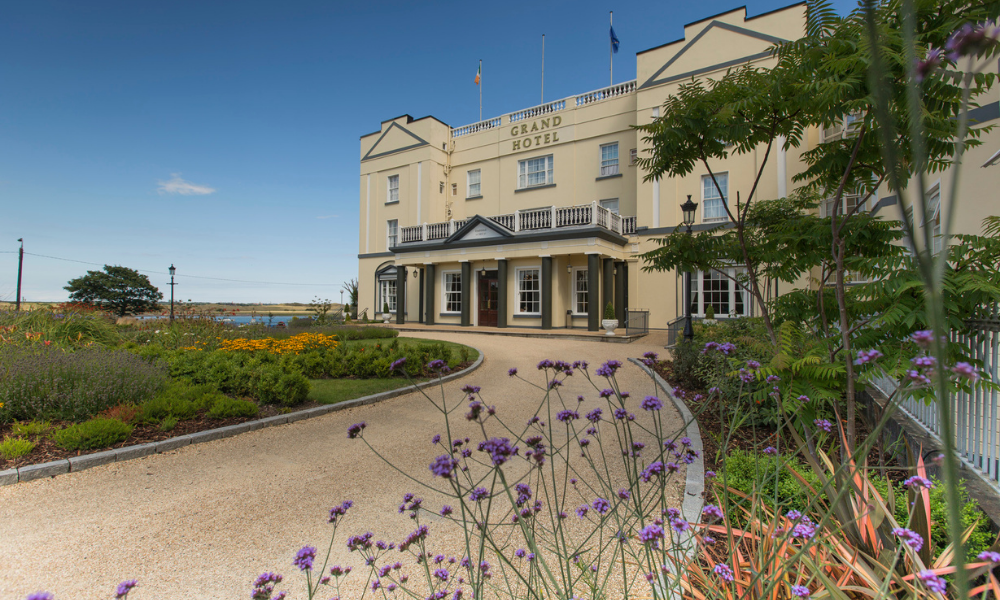Hotels and guesthouses across the country have cautiously welcomed the range of measures and supports announced yesterday (12 October) by Ministers Paschal Donohoe and Michael McGrath.
The chief executive of the Irish Hotels Federation (IHF), Tim Fenn, said the extension of employment supports and the rates waiver scheme are a welcome recognition of the challenges still being faced by tourism and hospitality businesses.
December Cliff Edge
He expressed serious concerns about the so-called December ‘cliff edge’ in the EWSS employment support scheme, whereby businesses that experienced a seasonal Christmas uplift would be excluded from further support in the bleak months of January to April. He urged the Government to provide a sector specific exemption for hospitality businesses.
He also said that the lack of commitment to a rates waiver beyond December 2021, when the industry enters its quietest business period, is also a source of significant concern and must be reconsidered by government as part of tourism recovery measures.

Additional Supports & VAT Rate
Mr Fenn also welcomed the additional targeted supports announced for the wider tourism, culture and arts sectors including €39m in enhanced tourism marketing and product development, €90 million to rebuild air connectivity and €50m in business continuity supports.
Mr Fenn called on the Government to reconsider its position on the 9% VAT rate. He said this vital measure should be extended until after 2025 in order to safeguard overseas tourism recovery and competitiveness.
“Failure to commit to an extension of the 9% VAT in this Budget is deeply regrettable and does not take account of the scale of decimation experienced by our industry,” he said.
“The Government is failing to recognise the importance of this measure as a contributor to international competitiveness and to the Irish tourism business model.
“In the aftermath of the last recession, the 9% VAT rate was an important enabler in job growth and created 90,000 tourism jobs – one of the most successful job support measures introduced in the history of the State.”
Tourism is Ireland’s Largest Indigenous Industry

The IHF Chief Executive added: “Tourism is Ireland’s largest indigenous industry, accounting for one in ten of all jobs, 70% of which are outside of Dublin.
“Government supports have been important to restoring employment and will continue to be going forward, helping to support the viability of individual businesses and the wider sector until business levels recover.
“In the summer months, the hotel sector alone recovered almost 30,000 jobs – bringing the total number of livelihoods supported by the sector to 57,000. While that is still some bit short of the 65,000 it supported in 2019 it is still a remarkable achievement.”
Uncertain Future
Mr Fenn pointed to the reality that while tourism did well during summer months in some regions, the hospitality industry now faced an uncertain period until the 2022 summer season.
The absence of overseas visitors has resulted in a sharp dropoff in bookings, while meetings and events – which would usually sustain the sector during the slower months – are also below expectactions.
Under the most optimistic scenario for the remainder of 2021, average occupancy is projected to reach 32% for the year as whole – a significant collapse in activity compared with 2019, when room occupancy was 73% and only a modest increase on the all-time historic low of 30% reached in 2020.
Hotels and guesthouses will have seen a combined €5.3bn drop in revenues across 2020 and 2021 as a direct result of this crisis with overall revenues dropping 68% in 2020 and 55% this year.
Expectations are that overseas tourism into Ireland will remain severely constrained next year and is unlikely to recover to pre-Covid levels until 2024/2025. “Budget 2022 didn’t go far enough to address this,” said Mr Fenn.



